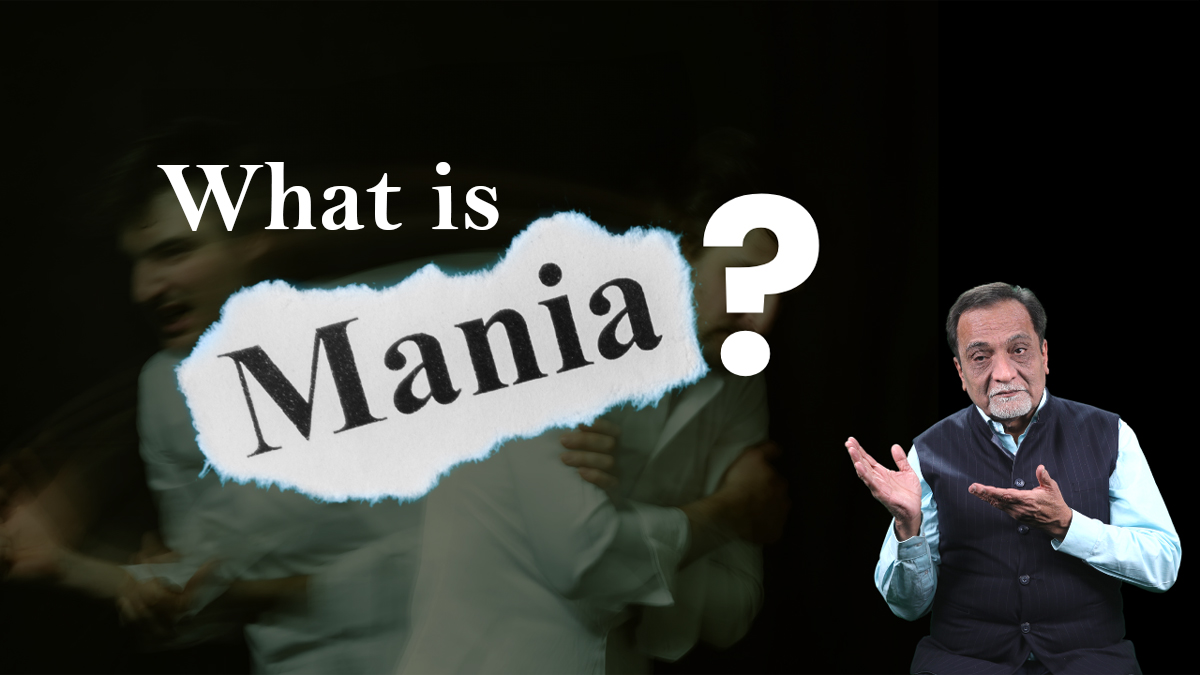
You must have noticed countries being ranked in terms of their happiness index. Happiness is an indicator of good mental well-being. However, there are few conditions in which one can stay very happy without any valid reason. This can be a sign of a health condition known as mania. This time, in our ‘Mental Health A-Z’ series, Dr Nimesh Desai, Senior Consultant Psychiatrist, and Former Director, IHBAS, Delhi, explained mania, its types, identifying factors, and how to treat it.
Table of Content:-
What Is Mania?

"In this condition, a person considers himself supreme, almost godlike. It can also be defined as excessive pathological unrealistic cheerfulness", informed Dr Desai.
He explained the 'Mania Triad' and listed the identifying factors as excessive cheerfulness, excessive physical activity, and excessive grandeur thoughts.
According to StatPearls, it's important to separate mania from increased energy and changed functionality that results from drug abuse, illnesses, or other factors. One 'natural' state that characterises bipolar disorder is mania. Bipolar disorder can be diagnosed with just one manic phase, while most cases also include hypomanic and depressive episodes.
Also Read: Mental Health A-Z: Expert Explains What Is Kleptomania And How Can It Be Treated
Types of Mania

There are two types, levels, or stages of mania as listed by Dr Desai:
- Hypomania: In hypomania, a person is slightly happier and more flamboyant than in their normal day-to-day life, spending more and making more friends.
- Full-blown mania: In full-blown blown mania, a person becomes irritated, picks fights, and spends a lot of money. A person considers himself a god or believes that he has been sent to earth for a great cause.
How To Identify Mania?

You can identify the mania by comparing it with the person's normal personality. Dr Desai listed the identifying factors for mania as follows:
- If a person becomes unusually cheerful, talkative, spendthrift, experiences sleeplessness, or wakes up early compared to their natural behaviour, they may experience hypomania.
- In the case of full-blown mania, a person becomes uncontrollable and causes havoc. Usually, hospitalisation is required for the treatment of this condition.
Usually, the condition is overlooked because staying happy, making friends, and socialising are considered a good characteristic. However, you should take note if someone behaves differently than usual.
Also Read: Mental Health A-Z: Expert Explains What Is Jealousy And How To Deal With It?
Mania And Depression
"Mania should not be considered as a separate condition; it is the opposite of depression. If a person has experienced depression before, there is a higher likelihood of experiencing hypomania and mania. It is important for friends and relatives to become more careful in identifying the condition", highlighted Dr Desai.
Treatment of Mania

- The excited phase of mania can be treated with or without hospitalisation using medications.
- Treatment for mania and depression is possible with medications.
- Several medications are available that can either completely cure or effectively control episodes of mania.
[Disclaimer: This article contains information for informational purposes only, hence, we advise you to consult your expert if you are dealing with any mental health issues.]
Also watch this video
How we keep this article up to date:
We work with experts and keep a close eye on the latest in health and wellness. Whenever there is a new research or helpful information, we update our articles with accurate and useful advice.
Current Version
Jan 17, 2024 13:00 IST
Published By : Chanchal Sengar